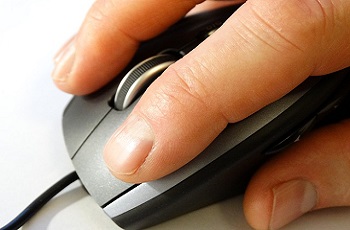Tech Start Ups Leading the Fight Against Addiction

Opioid overdose has become very rampant in the U.S. In fact statistics by the National Institute of Health shows that about 115 people die daily due to an overdose of opioid drugs.
Shockingly, the rate of opioid overdose deaths is greater than that of road accidents. Similarly, deaths from alcohol consumption are estimated to be 3.3 million annually. Alcohol contributes to over 200 different types of diseases and other injury-related illnesses.
Opioids and alcohol are the leading substances that cause deaths in the United States.
Despite the imprisonment measures to curb substance abuse, the move has become ineffective in controlling drug addiction.
Many policymakers and clinicians are now turning to therapeutic practices through digital health to help resolve the crisis. NCBI reports that most people prefer digital rehabilitation programs as opposed to traditional physical techniques like face-to-face communication. According to the report, when administered correctly, the use of emerging technologies to enhance traditional treatment procedures in a cost-efficient manner can open doors to various researches in the field.
Moreover, a cross-sectional survey by JMIR on the use of technology and social media for patients in outpatient drug addiction treatment programs, a majority of the poor prefer to the use of relapse prevention application on their phones where they can receive messages conveniently.
Further, Addicaid CEO, Sam Frons suggests that one of the best ways to curb drug addiction is to come up with something comfortable, organic and natural for the drug addicts. It will not only save them but also make them give back to the society.
Tech Startups in the U.S. are currently fighting drug abuse and addiction. Some of them include:
1. emocha
The start-up is based in Baltimore, MD. By July 2017, emocha had accumulated about $1million in a Seed Round. The company developed a mobile app that controls how patients take medication. The app seeks to promote adherence to medication, enhance patient-healthcare provider relationship and cut costs via a digital monitoring platform.
The app also uses videos as patients are required to hold their cameras in front of their faces whenever they take a dose. This aids to reduce opioid addiction by ensuring no dose is abused. The introduction of the app has led to a 95% adherence rate as opposed to earlier 50% before its introduction. The application can be used anywhere including hospitals, clinics, opioid disorder treatment centres, and other medical care centres.
2. Addicaid
Addicaid has raised a total of $290K in a Seed Round according to the reports on October 2017. The company has an app that utilizes AI with behavioural health skills of clinicians. The app collects data from many users which is then used to determine how the chatbots relate with users. It is suitable for use on addicts of different categories. It focuses more on the addicts and that it gives them the needed interaction for better healing.
3. Neurocarrus
Neurocarrus is based in Lincoln, Nebraska. It is still raising a Seed Round. The biotech company seeks to develop a technology that helps to disrupt pain signals without necessarily using addictive medications or disturbance of muscular control. The development is critical considering the fact that about 100 million people in America who suffer from chronic pain seek opioid treatments that end up causing addictions. The development of an alternative treatment or therapy will help resolve a bigger part of the problem.
The company’s drug therapy called N-001 is safe and works by disrupting the peripheral sensory neurons to reduce pain from damaged or inflamed tissues and nerves. It simply targets the physiological aspects of pain with little to no emphasis on surgery or drugs. So far, the company has invested much in supporting the efficiency of the app.
4. WeRecover
WeRecover is a startup in Santa Monica, California. It raised a Seed Round declared on May 2017. They’ve designed the first online-based tool used in drug addiction recovery centres. A patient fills out an online application form after which a corresponding algorithm that pairs them with appropriate rehabilitation centres.
The centres vary depending on insurance and how accessible, affordable and relevant the programs are. The idea is based on the fact that although many patients may recognize the problem of addiction, finding a good rehab centre is more challenging. The tool helps them find relevant centres where they can get immediate assistance while maintaining their confidentiality.









